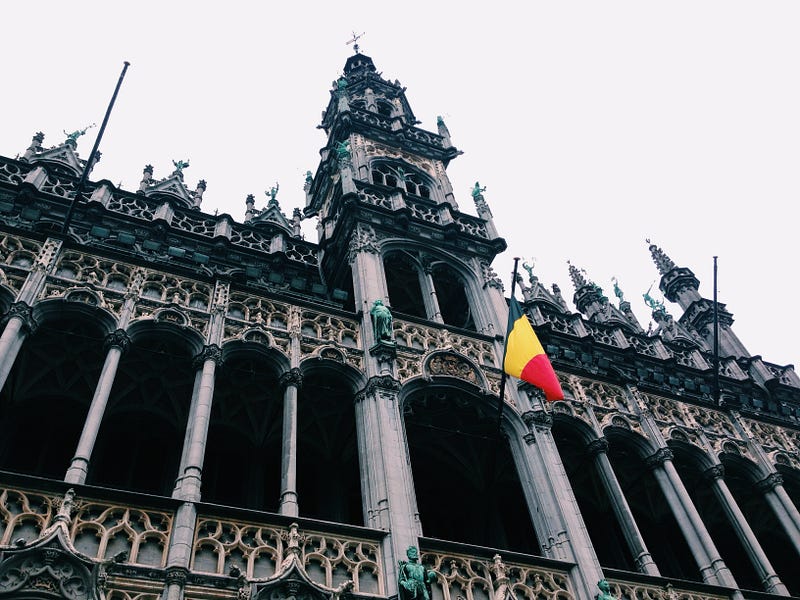From Bellingham to Brussels: a student’s sojourn

Understanding a global issue from the eyes of an exchange student
Personal narrative written by Janae Easlon
It took me over a year to plan, a month to apply for a visa and 12 hours to fly to Brussels, Belgium, my home for six months in 2015.
Looking back, I realize how little I understood my host country. Run-of-the-mill stereotypes clouded my views. Great beer, breathtaking architecture, memorable cuisine — there was no better place to be an exchange student.
What I didn’t know was that it is a country divided.
Belgium has three official languages — French, Dutch and German — due to the country touching the borders of Germany, the Netherlands and France. Historically, the upper class of Belgium spoke French, while the rest of the population spoke Dutch or Flemish. Throughout time, the politics of Belgium became as divided as the class system.
According to census data, 70 percent of the city’s population is from other countries.
Brussels is an international city at heart and the proclaimed capital of Europe — it is the center of the North American Trade Organization, the European Union and the European Parliament.
In 2015, members of the European Union disagreed upon how many refugees to host in the wake of the European refugee crisis.
Over 135,000 refugees entered Europe by sea in the first half of 2015, according to the United Nations Refugee Agency. Of the 35,000 applications Belgium received from Syrian, Iraqi and Afghan asylum seekers, the country granted refugee status to close to 98 percent of Syrian applicants, according to the Belgium Office of the Commissioner General for Refugees and Stateless Persons.
In Belgium — a small country about the size of Maryland — the question of how many refugees to take in became the forefront of the issue.
As a Caucasian, American student, I could move freely, even though I didn’t realize it at the time. I was never stopped in an airport security line and wasn’t given a second glance at a train station.
My internship supervisor, a Portuguese woman, has lived in Brussels for 15 years. Because of her tan complexion, she is often stopped at the Brussels Airport for a secondary security screening.
“Are you sure you have a Belgian visa?” they would ask her. She told me she began to carry a Portuguese passport from then on to stop the questioning.
My journalism instructor at Vesalius College, a Greek man, has lived in Brussels for more than five years. Because of his darker complexion, he told us stories of the looks he would get on public transportation.
My supervisor and instructor, both legal immigrants, were viewed no different than refugees: both believed to be taking up space.
But I was taking up space, too. People needed to be here for security, while I was there out of curiosity and to learn.
Paris was attacked on Nov. 13, 2015. The attack sparked a political debate as to whether or not the assailants took advantage of the refugee crisis to enter the county. The men turned out to be French and Belgian and 130 lives were lost.
Brussels went on lockdown on Nov. 21, 2015, after a car, reported to be owned the attackers, headed to the Belgian border.
I was on a plane from Stockholm to Brussels after a holiday with a friend. My email inbox flooded, my phone kept ringing, all messages from people back at home.
I was escorted on a bus from the airport to my friend’s apartment in the center of Brussels. All taxi services and metro rides in the city were halted. The view from my apartment window showed no sign of my neighbors. All shops on my street showed fermé or “closed” signs.
The way I experienced the lockdown versus what American media were saying did not match up. At the time, I wished my French was good enough to understand the local Belgian news.
The American media showed tanks and panicked people at the airport. Headlines such as, “Brussels on high alert rate over terror attack” caused people overseas to see the situation as life or death. My parents asked if I could come home as soon as possible after they learned school was canceled for almost a week.
My host mom would tell me, “It is better that you are here than walking out there.” To her, the attack was only a facet of the larger issue. Brussels had lockdowns in the past for similar incidents, and this event did not phase her as much as it phased me.
My time in Belgium began to feel like a countdown — how much more could I take before I felt intimidated enough to go home? Would I ever want to come back?
I didn’t come back to the U.S. before I was scheduled to, but many of my peers decided to leave before our program ended.
Now that I am home, I feel like a piece of me was left in Brussels. I knew my feelings of the events around me, but it wasn’t until I was back before I became aware of my privilege.
People live in fear every day. What I experienced was only a sliver of what others live their whole lives. My experiences shouldn’t be valued more than someone trying to immigrate for their safety or someone who lives in a city their whole life, never to be treated like a citizen.
I plan to return to Brussels one day. While I will always be an American, witnessing an event like the Brussels lockdown gave me solidarity with the Belgian culture during this time.
Brussels, je t’aime.
